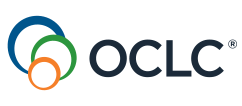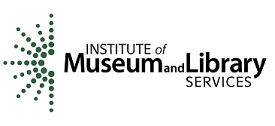Learn Digital Collections Stewardship with on-demand courses

Creating and sharing digital collections is an important way that libraries can share and preserve unique local history, culture, stories, and artifacts. Digital collections offer an opportunity to represent a diversity of experiences and voices in your community that may be missing from your physical collection.
Planning, creating, managing, preserving, and sharing digital collections, however, can be resource-intensive work that requires technology, new skills, and an ongoing commitment to maintain them. Understanding the full lifecycle of digital stewardship is critical to successful digital collections.
This course series, designed specifically with the needs of small cultural institutions in mind, will guide you through the lifecycle of digital stewardship. This lifecycle describes the entire ongoing range of tasks and activities necessary to successfully share digital collections.
All on-demand courses in this series, adapted from the Tribal Digital Stewardship Cohort Program developed at Washington State University, are available in the Course Catalog.
Explore the full course series:
The following seven courses will introduce you to the entire ongoing range of tasks and activities necessary to successfully share digital collections. If you’re new to digital collections, we encourage you to take these courses sequentially; if not, feel free to choose the courses that fit your needs.
- Introduction—Digital collections and the Digital Stewardship Lifecycle.
- Preparing—Initial planning and documentation to define your digital collection project and how you will accomplish it.
- Gathering—Sourcing items for your collections from partners and community, appraisal and accessioning.
- Digitizing—Identify resources needed to digitize, develop digitization strategies and documentation processes.
- Enhancing—Organize and describe your digital collections for preservation, discovery, and meaning.
- Saving—Tools, standards and processes for long-term digital preservation.
- Sharing—Providing equitable and appropriate access to your digital content through online collections.
An additional course, A Community-Centered Approach to Digital Collections complements the first seven courses and encourages learners to consider how the collections they create do or do not represent the full range of people, groups and organizations in their communities.
We recommend taking this course between 1: Introduction and 2: Preparing, though we think you’ll find it helpful at any point.
The need—and challenges—for digital stewardship training
A pressing concern for staff at tribal libraries, archives, and museums is managing, preserving, and caring for the diverse cultural heritage materials in their holdings. And, like many staff at tribal archives, libraries, museums, and small public libraries (TALMs), small and rural public library staff also face barriers to accessing training and resources to digitize their collections.
This training will strengthen staff skills and knowledge of:
- Understanding the lifecycle of digital stewardship
- Practicing ethical stewardship of culturally sensitive collections
- Creating policies to sustain and manage collections
- Collaborating with community members and partner organizations
- Planning digitization and digital workflows
- Caring for digital collections
- Providing access to collections based on community values and priorities
A training program to meet unique institutional needs
This project has created a set of online, on-demand continuing education courses, freely available to TALM and public library staff, many of whom have been overlooked by programming that does not consider their limited resources, infrastructure, and distinct training needs. These courses focus on tribal, cultural, and community histories and needs.
Adapting and expanding the original program’s scope addresses an important training need documented in OCLC’s 2017 research report, Advancing the National Digital Platform: The State of Digitization in US Public and State Libraries, which was funded by the Institute of Museum and Library Services. According to that report’s findings, while 92% of the public libraries surveyed reported having unique, locally significant materials, most respondents from small libraries indicated they have never digitized their collections. Among public library respondents, 61.4% identified insufficient staff training/expertise as a barrier to their digitization efforts.
Sustainable, free, and openly accessible
While designed to meet the needs of staff at TALMs and small public libraries, the courses are accessible to all through OCLC’s free and open learning community, WebJunction, as well as on Washington State University’s Sustainable Heritage Network.
Project partners
OCLC’s WebJunction partnered with Washington State University’s Center for Digital Scholarship and Curation to create this course series.
This project and the seven-course series are made possible in part thanks to support from OCLC, Washington State University, and the Institute of Museum and Library Services (project number RE-246364-OLS-20).
A Community-Centered Approach to Digital Collections is made possible through the support of the Institute of Museum and Library Services (project number RE-254876-OLS-23).
Short URL: oc.lc/digital-stewardship
Webinar Recording
Digital Collections at Your Library: Community, Culture, and Connection
In this webinar, practitioners share how their digital collections have enabled their community members to connect with unique histories and cultures, increase appreciation of local history, and foster connections across generations. And the WebJunction team shares information about the Digital Collections Stewardship course series.



